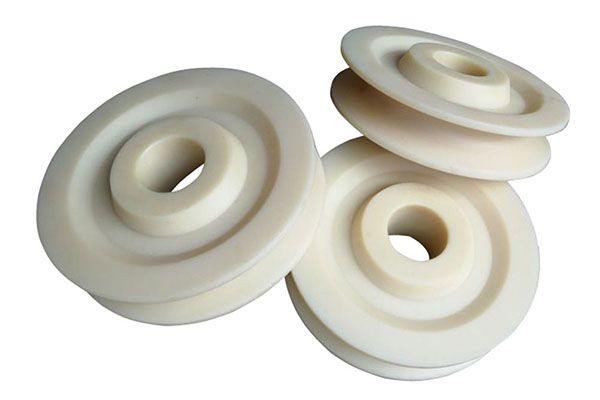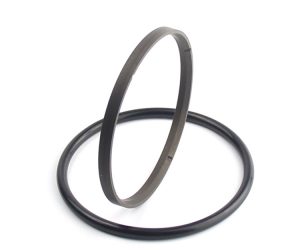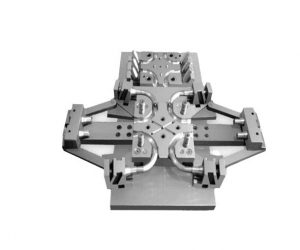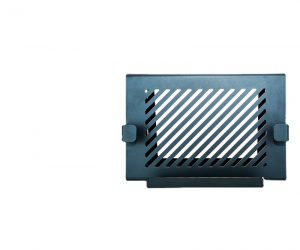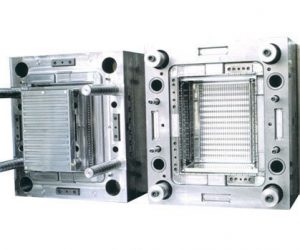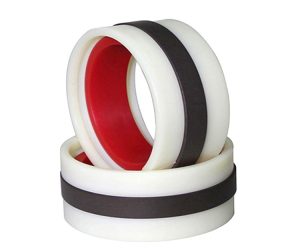1. Introduction: The Role of CNC in Modern Precision Manufacturing
In today’s fiercely competitive industrial landscape, precision is non-negotiable. Computer Numerical Control (CNC) manufacturing services have emerged as the gold standard for producing high-quality, intricate parts across a wide range of industries, such as aerospace, automotive, and healthcare.
Yigu Technology delves into the leading local CNC providers, explores their technical capabilities, and offers insights on how to choose a partner that strikes the right balance between precision, speed, and cost - effectiveness. By the end of this read, you'll be well - equipped to make an informed decision when it comes to selecting a CNC manufacturing service for your precision - based projects.
2. The Technical Edge of CNC Manufacturing
2.1 How CNC Achieves Micron - Level Precision
CNC machines are marvels of modern engineering, capable of achieving an extraordinary level of precision. They utilize computer - aided design (CAD) and computer - aided manufacturing (CAM) software as the cornerstone of their precision - driven operation. These software systems translate intricate digital models into physical parts with astonishing accuracy, often reaching micron - level tolerances.
One of the key processes that enable this high - precision production is 5 - Axis Milling. Traditional milling machines typically operate on three axes (X, Y, and Z), which limits their ability to create complex geometries. In contrast, 5 - Axis Milling machines can move simultaneously along five axes, usually the three linear axes (X, Y, Z) and two rotational axes (A and B or C). This added freedom of movement allows for the creation of highly complex shapes that would be nearly impossible to achieve with conventional methods. For example, in the aerospace industry, 5 - axis milling is used to manufacture turbine blades with complex airfoil shapes. These blades have curved surfaces and intricate internal cooling channels. With 5 - axis milling, manufacturers can produce these blades in a single setup, reducing errors that could occur from multiple setups and achieving tolerances as tight as ±0.001 inches or even better in some advanced facilities.
High - Speed Turning is another crucial process in CNC manufacturing. It involves the rapid rotation of a workpiece while a cutting tool removes material to create the desired shape. The high - speed operation reduces cycle times, which is beneficial for mass production. However, the challenge with high - speed turning is maintaining a high - quality surface finish. Advanced CNC lathes are equipped with sophisticated control systems that adjust the cutting speed, feed rate, and depth of cut in real - time to ensure that the surface roughness remains within the specified limits. For instance, in the automotive industry, high - speed turning is used to manufacture engine shafts. A study by a leading automotive parts manufacturer found that by using high - speed turning in CNC lathes, they were able to reduce the production time of engine shafts by 30% while maintaining a surface finish roughness of less than 0.8 µm, which is essential for the smooth operation of the engine.
Automated Tool Changing is a feature that significantly contributes to the precision and efficiency of CNC manufacturing. In a typical CNC machining operation, multiple cutting tools are required to complete a part. Manual tool changing is time - consuming and can introduce errors due to human factors. Automated Tool Changers (ATCs) are designed to quickly and accurately exchange tools during the machining process. ATCs can store a large number of tools, sometimes up to 100 or more in high - end CNC machines. They are programmed to select the appropriate tool based on the machining requirements specified in the CAM program. This minimizes downtime between tool changes, allowing for continuous production. For example, in a job shop that produces custom - made parts for the medical device industry, an ATC - equipped CNC machining center can reduce the overall production time of a complex surgical instrument by 20 - 30% compared to a machine without an ATC. The reduced downtime also means that the machine can maintain a more consistent cutting condition, resulting in higher precision parts.
2.2 Material Versatility
One of the remarkable aspects of CNC manufacturing services is their ability to work with a diverse range of materials. This versatility makes CNC an ideal choice for a wide variety of industries, each with its own unique material requirements.
Metals are widely used in CNC manufacturing due to their strength, durability, and thermal properties. Aluminum is a popular choice in many industries, especially aerospace and automotive. It is lightweight, corrosion - resistant, and has good machinability. In the aerospace industry, aluminum is used to make aircraft frames, wings, and engine components. CNC machining can create complex aluminum parts with high precision, ensuring that they meet the strict safety and performance standards of the aerospace industry. Titanium is another metal that is highly valued for its strength - to - weight ratio and excellent corrosion resistance. It is commonly used in the aerospace, medical, and marine industries. For Yigu Technology example, in the medical field, titanium is used to make orthopedic implants such as hip and knee replacements. CNC manufacturing allows for the precise shaping of titanium implants to fit the patient's anatomy perfectly. Stainless steel, known for its corrosion resistance and high strength, is used in applications such as food processing equipment, chemical processing plants, and architectural components. CNC machining can produce stainless - steel parts with tight tolerances, ensuring their proper functionality in these demanding environments.
Polymers offer a different set of properties that make them suitable for various applications. ABS (Acrylonitrile Butadiene Styrene) is a common thermoplastic polymer that is easy to machine and has good dimensional stability. It is used in the production of consumer products, such as toys, electronics enclosures, and automotive interior components. Nylon, on the other hand, is known for its high strength, abrasion resistance, and low friction. It is often used in applications where these properties are crucial, such as gears, bearings, and conveyor belts. Polycarbonate is a tough, transparent polymer with excellent impact resistance. It is used in the production of safety glasses, automotive headlights, and electronic displays. CNC machining can accurately shape these polymers into complex parts, meeting the design requirements of different industries.
Composites, such as Carbon - Fiber - Reinforced Plastics (CFRP), are becoming increasingly popular due to their high strength - to - weight ratio. CFRP consists of carbon fibers embedded in a polymer matrix, usually epoxy resin. The carbon fibers provide the high strength and stiffness, while the polymer matrix holds the fibers together and distributes the load. CFRP is widely used in the aerospace, automotive, and sports equipment industries. In the aerospace industry, CFRP is used to make aircraft fuselages, wings, and control surfaces, reducing the weight of the aircraft and improving fuel efficiency. In the automotive industry, CFRP is used to make high - performance parts such as body panels and racing car components. CNC machining of composites requires specialized techniques and tools to avoid damaging the carbon fibers. However, with the right equipment and expertise, high - precision composite parts can be produced.
The following Yigu Technology table summarizes the properties and common applications of some of the materials used in CNC manufacturing:
| Material | Key Properties | Common Applications |
| Aluminum | Lightweight, corrosion - resistant, good machinability | Aerospace (aircraft frames, wings), automotive (engine components, body panels) |
| Titanium | High strength - to - weight ratio, corrosion - resistant | Aerospace (engine components, structural parts), medical (orthopedic implants) |
| Stainless Steel | Corrosion - resistant, high strength | Food processing equipment, chemical processing plants, architectural components |
| ABS | Easy to machine, good dimensional stability | Consumer products (toys, electronics enclosures), automotive interior components |
| Nylon | High strength, abrasion - resistant, low friction | Gears, bearings, conveyor belts |
| Polycarbonate | Tough, transparent, excellent impact resistance | Safety glasses, automotive headlights, electronic displays |
| Carbon - Fiber - Reinforced Plastics (CFRP) | High strength - to - weight ratio | Aerospace (aircraft fuselages, wings), automotive (high - performance parts), sports equipment (bicycle frames, golf clubs) |
4. Top Local CNC Manufacturing Services: A Comparative Analysis
When it comes to finding the best local CNC manufacturing services for precision, several factors need to be considered. Let's take a look at some leading companies in the field and compare their key features.
| Company Name | Specialization | Precision | Certifications | Notable Clients |
| Yigu Technology | Prototyping, short - run production | ±0.01mm | ISO 9001 | Local automotive startups |
| AeroTech Precision | Complex aerospace components | ±0.005mm | AS9100 | Boeing subcontractors |
| MedTech Solutions | Medical device parts | ±0.02mm | FDA, ISO 13485 | Stryker, Medtronic |
5. Applications of Precision CNC Services
5.1 Aerospace and Defense
In the aerospace and defense sectors, the demand for precision is nothing short of critical. The slightest deviation in a component can have catastrophic consequences, whether it's a malfunction during a space mission or a failure in a military aircraft.
One notable example is the use of CNC - machined titanium brackets in the Airbus A350 XWB. These brackets are crucial for the structural integrity of the aircraft. By using CNC manufacturing, Airbus was able to achieve a significant weight reduction. In fact, these precision - made titanium brackets contribute to a weight savings of approximately 600kg per aircraft. This weight reduction not only improves fuel efficiency but also enhances the overall performance of the A350 XWB, allowing it to fly longer distances with less fuel consumption.
SpaceX, the renowned space technology company, heavily relies on CNC manufacturing for its rocket components. For instance, the combustion chambers of their rockets are produced using CNC technology. This has had a profound impact on their production process. By leveraging CNC machining, SpaceX has been able to cut the lead time for these critical components by a staggering 80%. In the fast - paced world of space exploration, where time is often of the essence, this reduction in lead time is invaluable. It allows SpaceX to conduct more frequent launches, accelerate their research and development efforts, and stay at the forefront of the space race. The high - precision CNC - machined combustion chambers also ensure the efficient combustion of rocket propellants, which is essential for achieving the high thrust required to escape Earth's gravity and reach space.
5.2 Healthcare
The healthcare industry is another area where precision CNC services play a vital role. The production of surgical instruments and medical implants demands the highest level of accuracy and biocompatibility.
Surgical instruments, such as forceps, scalpels, and endoscopic tools, require extreme precision to ensure safe and effective surgeries. CNC manufacturing enables the production of these instruments with tight tolerances, ensuring that they function flawlessly. For example, a pair of laparoscopic forceps used in minimally invasive surgeries needs to have precise jaws that can grip tissues delicately without causing damage. CNC - machined forceps can achieve the required precision in the shape and alignment of the jaws, enhancing the surgeon's ability to perform complex procedures with greater control and accuracy.
When it comes to implants, biocompatibility is a top priority. CNC - machined implants, such as hip and knee replacements, are made from biocompatible materials like titanium alloys. These materials are carefully selected to ensure that they do not cause any adverse reactions in the patient's body. The precision of CNC machining allows for the creation of implants that fit the patient's anatomy perfectly. This not only improves the functionality of the implant but also reduces the risk of complications. For instance, a CNC - manufactured hip implant can be customized to match the unique shape and size of a patient's hip joint, providing a better fit and reducing the likelihood of implant loosening or dislocation over time.
In addition, there are MRI - compatible tools used in medical imaging. These tools are made from non - magnetic materials, often titanium alloys, to avoid interference with the magnetic fields of MRI machines. CNC manufacturing ensures that these tools are produced with the necessary precision, allowing medical professionals to obtain accurate and clear images during diagnostic procedures.
5.3 Automotive
The automotive industry is constantly evolving, and precision CNC services are playing an increasingly important role in this evolution, especially with the rise of electric vehicles (EVs).
EV battery enclosures are a prime example of the application of CNC manufacturing in the automotive sector. These enclosures are typically made from aluminum and are CNC - machined to meet strict thermal management requirements. The high - precision machining ensures that the enclosures have the right dimensions and features to effectively dissipate heat generated by the batteries. For Yigu Technology example, the internal channels and fins in the battery enclosures are precisely machined to optimize the flow of coolant, keeping the batteries at an optimal temperature. Maintaining the right temperature is crucial for the performance and longevity of EV batteries. If the batteries overheat, their efficiency can decrease, and their lifespan can be significantly shortened.
Custom jigs are another area where CNC manufacturing has made a significant impact in the automotive industry. Volkswagen, for instance, uses CNC - machined custom jigs in its assembly lines. These jigs are designed to hold and position parts accurately during the assembly process. By using CNC - made jigs, Volkswagen has been able to reduce downtime in its assembly lines by 40%. The precision of the jigs ensures that parts fit together correctly, reducing the need for rework and adjustments. This not only improves the efficiency of the assembly process but also enhances the quality of the vehicles produced.
8. Conclusion: Partnering for Precision
In the realm of modern manufacturing, the quest for precision is unending, and CNC manufacturing services have emerged as the cornerstone for achieving it. The ability to produce intricate, high - tolerance parts across diverse industries, from aerospace to healthcare and automotive, has made CNC an indispensable technology.
Choosing the right local CNC provider Yigu Technology is a multifaceted decision. It's not just about the technical capabilities, although those are crucial. As we've seen, features like 5 - Axis Milling, High - Speed Turning, and Automated Tool Changing are fundamental in achieving the desired precision. But it's also about certifications. ISO 9001, AS9100, FDA, and ISO 13485 certifications are not just pieces of paper; they are assurances of quality, safety, and compliance. These certifications ensure that the parts produced meet international standards, which is vital, especially in industries where failure is not an option.
Industry experience also plays a significant role. Companies like Yigu Technology Precision, with their focus on prototyping and short - run production for automotive startups, have the know - how to work with fledgling businesses.
FAQ
- Q: How can I be sure a CNC provider can meet my precision requirements?
A: Look for their precision specifications, like ±0.01mm or ±0.005mm, and check if they have relevant experience in your industry. Certifications such as ISO 9001 also indicate quality management systems that help ensure precision.
- Q: Are there any limitations to the materials that can be used in CNC manufacturing?
A: While CNC can work with a wide range of materials including metals, polymers, and composites, each material has its own machining characteristics. For example, composites require specialized techniques. But overall, the material options are quite extensive.
- Q: How do I choose between a local and an international CNC provider?
A: Local providers may offer shorter lead times, easier communication, and the ability to visit the facility. International providers might have unique capabilities or cost - advantages. Consider your project's needs, such as urgency, precision requirements, and cost - effectiveness, to make the decision.
